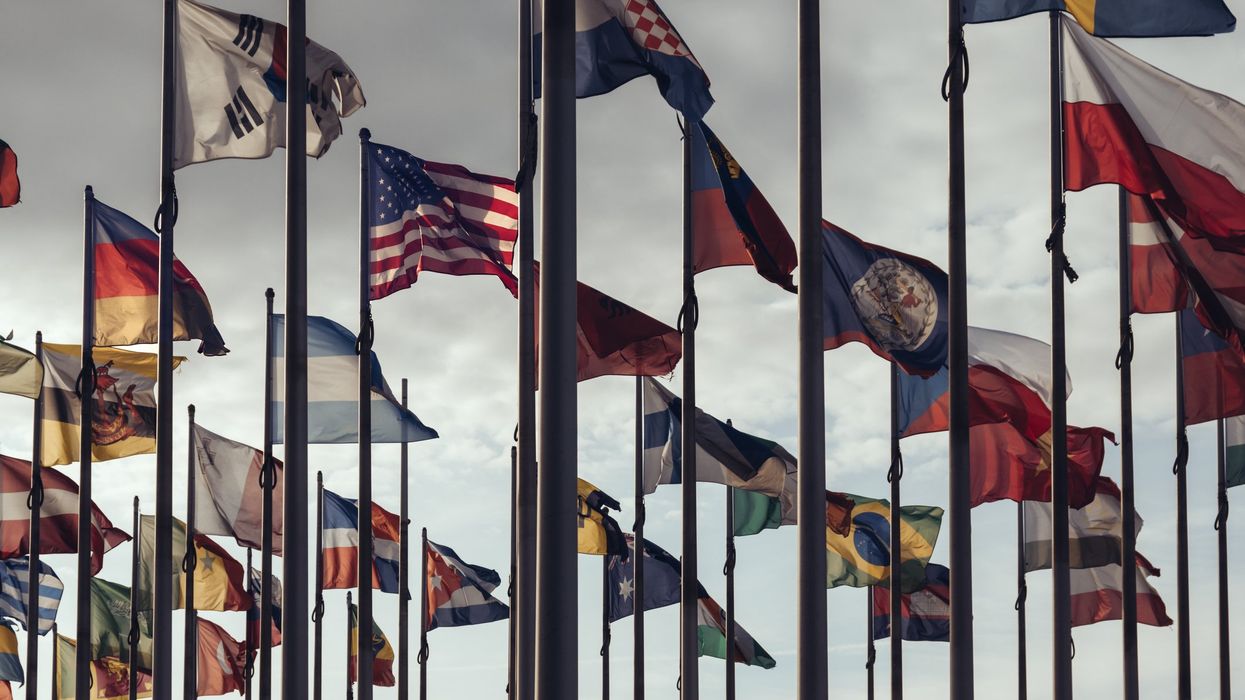Which is better: A world at peace but where there is injustice in every country or a world in which justice reigns in every country but which is in constant economic, political, and military conflict? What a terrible choice! Neither world has ever existed or ever will, but it is instructive to think about both possible worlds to think about the challenges facing political leaders, corporate and nonprofit leaders, political organizations, religious leaders, and citizens themselves.
The world must clearly avoid another World War, a topic receiving increasing attention in the last year or so and especially in recent months. World War III could be a nuclear disaster, although it is not a given that World War III would be a nuclear war. Still, any World War III, whether it develops out of the war between Ukraine and the West and Russia and North Korea, Israel, Hamas, Iran and the Middle East, or Taiwan and China, is potentially a devastating war that could take tens of millions of lives.
Yet even if World War III is avoided, achieving justice in individual countries is a massive, endless journey and, for many, as frightening as war itself. Indeed, while millions pursue justice, the journey remains elusive: there is no concept of justice that all countries share in practice, although some liberal internationalists, some socialists, and some right-wing authoritarians will tell you that there is such a concept in theory.
Even taking a broadly liberal democratic concept of justice -- one that promotes basic civil and political rights and some baseline of economic goods that prevents the worst forms of poverty -- it is still hard to see how it will ever be achieved in all or even most of the countries of the world.
One reason the world is always in conflict on economic and political matters is because different countries have different concepts of justice. Add to this the basic fact that countries speak different languages, and it becomes clear why international relations and diplomacy are so challenging for all countries.
In the months ahead, as the Trump administration begins its second administration, it will be important to keep the twin goals of justice and peace in front of the administration and Congress. As the United States negotiates with other countries on economic matters, we need to work toward advancing our concept of democratic values, recognizing that other countries, even other democracies, do not share our precise concept of democratic values.
There is nothing wrong with promoting our cherished values, but we must not presume that every country lives with the same concepts. This applies especially to Russia and China. In our quest for peace, we must work more collaboratively with our allies since our enemies are forming powerful bonds that will require new alliances to combat them. The China-Russia-Iran-North Korea Axis is extremely powerful, and America alone cannot take them on. We must hold together our bonds with Europe, South Korea, Japan, Israel and Australia.
And while we pursue justice and peace for the world, we must not lose sight of the fact that the battle over justice within our country is broadly similar to the battles over economic and political affairs we have with other nations. American Democrats and American Republicans, and even factions within both parties and with independents and Third Parties, do not share the same concept of justice -- or liberty or equality. Expecting a broad consensus on the world stage is even less likely.
The Freedom Caucus of the Republican Party has different ideals, values, and missions from Center-Left Democrats as well as mainstream Republicans in the same way that the United States overall has battled with the Axis Powers as well as France, Germany, and other NATO countries in West Europe. The reality is that rival factions within countries, as well as conflicts between countries, are similar in that they both talk past each other, often talking without listening to each other.
Despite the endless quests for peace and justice, whether within or between countries, citizens and leaders alike in the United States and other democracies need the kind of hope proclaimed over 50 years ago by Rev. Dr. Martin Luther King, Jr.: “The arc of the moral universe is long, but it bends towards justice."
Anderson edited "Leveraging: A Political, Economic and Societal Framework," has taught at five universities and ran for the Democratic nomination for a Maryland congressional seat in 2016.



















 Senate Committee on Commerce, Science, and Transportation ranking member Sen. Maria Cantwell (D-WA) (R) questions witnesses during a hearing in the Russell Senate Office Building on Capitol Hill on February 10, 2026 in Washington, DC. The hearing explored the proposed $3.5 billion acquisition of Tegna Inc. by Nexstar Media Group, which would create the largest regional TV station operator in the United States. (Photo by Chip Somodevilla/Getty Images)
Senate Committee on Commerce, Science, and Transportation ranking member Sen. Maria Cantwell (D-WA) (R) questions witnesses during a hearing in the Russell Senate Office Building on Capitol Hill on February 10, 2026 in Washington, DC. The hearing explored the proposed $3.5 billion acquisition of Tegna Inc. by Nexstar Media Group, which would create the largest regional TV station operator in the United States. (Photo by Chip Somodevilla/Getty Images)
